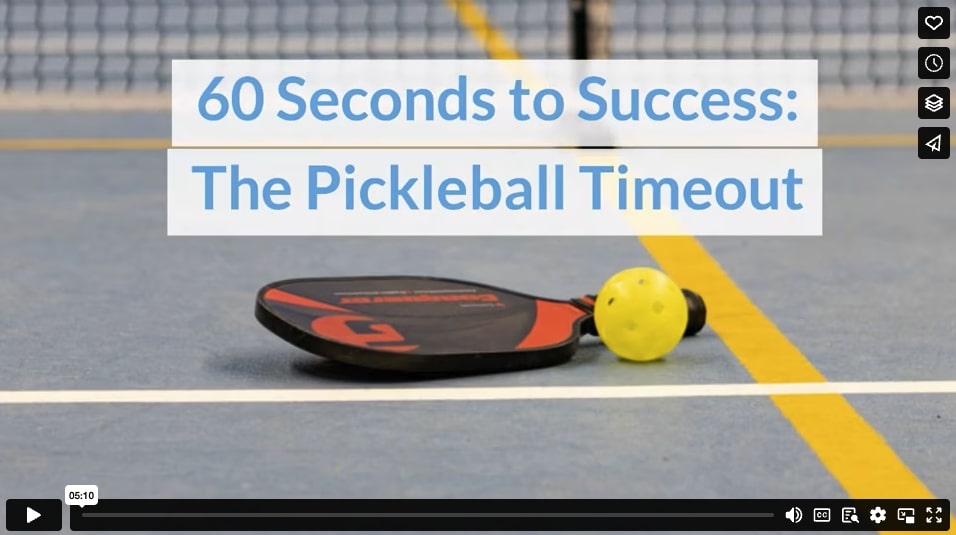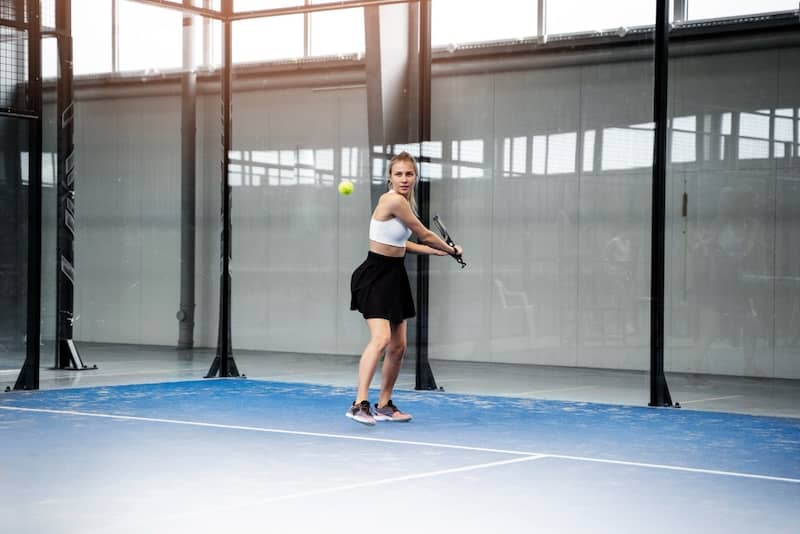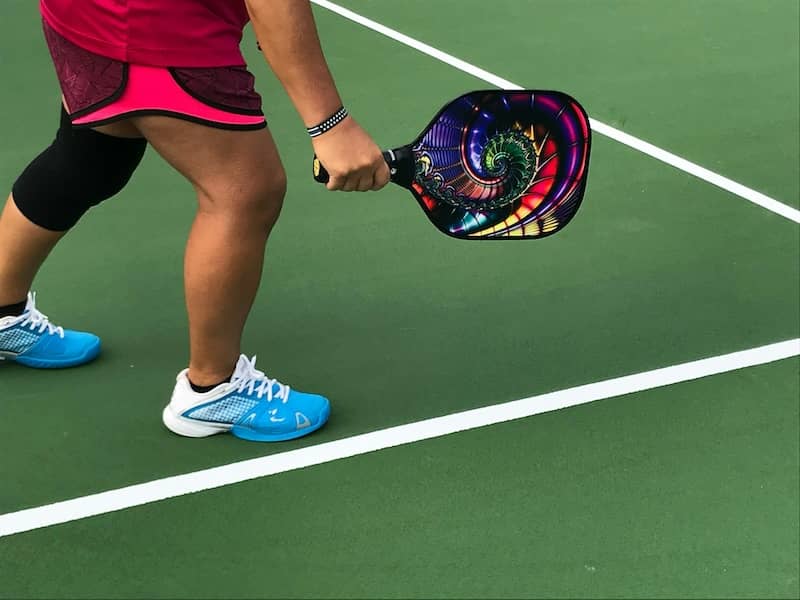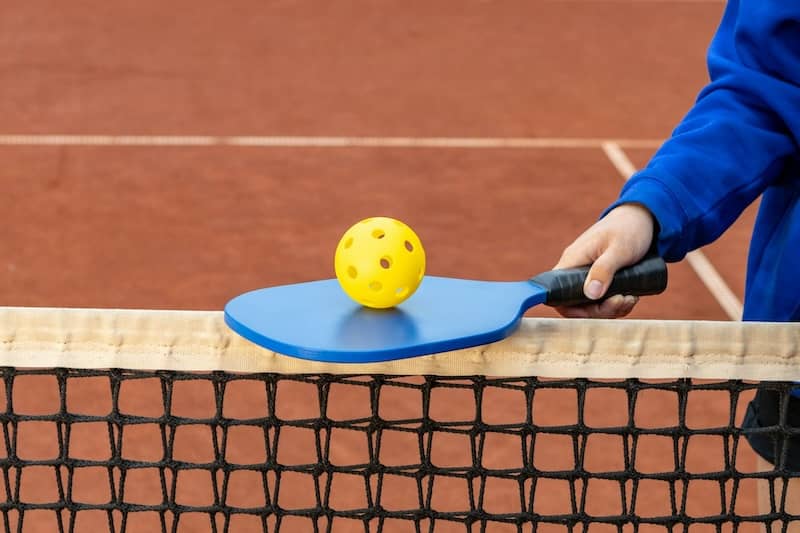What’s the best part of watching a movie at home instead of in the theater? Being able to press pause to grab a snack, hit the bathroom, or check your phone is undoubtedly pretty high on the list. A great pause can make all the difference in an experience.
When that experience is a pickleball game, calling a timeout is your opportunity to hit the pause button. Many players forget that timeouts are available, and their game may be worse off for it. Here, we will take the time to talk about timeouts in pickleball. So hit the pause button on whatever else you are doing and read this information to learn everything you need to know about pickleball timeouts.
Types of Timeouts
In pickleball tournament play, there are different types of timeouts.
Standard Timeout
A standard timeout is what comes to mind when most people think of a timeout. One player or team calls for a pause in play to regroup, strategize with their partner, or do whatever else they want with the break. A standard timeout in pickleball lasts 60 seconds.
Each side can use two standard timeouts in an 11- or 15-point game. For a 21-point game, they may take up to three standard timeouts.
Time Between Games
Between games in a match, there is a two-minute break. If a team or player wants a more extended break, they can add a standard timeout to this pause. That extra break would count against their timeout limit.
Most tournaments have matches in which the winner is determined by who wins two of three games. Between each game, the players switch ends of the court. This switch is when the two-minute break occurs.
Time Between Matches
In some tournaments, teams play multiple consecutive matches. There is a ten-minute break between matches. Play can begin sooner if both teams are ready and agree to proceed before ten minutes have elapsed.
Referee Timeout
A match referee can call timeouts as necessary, at their discretion. There is no set time limit for these pauses in play. They will last as long as the referee feels is needed to resolve the issue that led to the timeout.
Examples of situations that might lead to a referee timeout include obstructions on the court, heat exhaustion, inclement weather, water on the court, or bleeding players (more on this one later when we discuss medical timeouts).
Referee timeouts do not count against either team’s remaining timeout count.
Medical Timeout
Each team may call one medical timeout per match. This timeout can last up to 15 minutes. During this time, a player can receive medical services.
You may be tempted to call a medical timeout if you need a break or want to halt an opponent’s momentum. That would be a mistake. If the tournament medical staff determines there is no legitimate medical issue, you lose one of your standard timeouts. If you have no remaining timeouts, a misused medical timeout costs you a fault.
If a player cannot return to play after 15 minutes, the game is forfeited, with victory going to the other team. You have 15 minutes to treat your injury, receive medical care, and recover as needed. Your match is over if you aren’t back to playing condition after that time.
If a player on the court is bleeding, the referee will call a timeout. This pause will last as long as is necessary to control the bleeding and clean any blood off the playing surface and equipment.
Equipment Timeout
If players have a problem with their equipment, they must use one of their standard timeouts to address the issue. However, if the referee determines that a player needs an equipment adjustment during play and if that player has no remaining standard timeouts, the referee can call an equipment timeout. That would mean a 2-minute break to allow a player to correct a problem with their equipment. An equipment timeout could be anything from needing to switch to a backup pickleball paddle to a broken shoelace on someone’s pickleball shoes.
Timeout Strategy
Using your timeouts should be part of your overall pickleball strategy. When should you use your standard timeouts?
Exhaustion
Perhaps you’ve just played an intense, long-lasting point that wore you out. Or maybe the sun on the pickleball court feels overly intense. Whatever the cause, when your body feels like it is reaching its limits, give it a break. Call a timeout. Grab some water, stretch a tight muscle, or simply catch your breath.
Mental Fatigue
When nothing is going right, or you can feel your focus isn’t where it needs to be, a timeout can help. Even though it’s only a one-minute break, that can often be enough to allow you to reset your mental game, do some calming breathing exercises, forget about an unforced mistake, or pull your focus back to where it needs to be.
If you feel your mental game slipping, consider calling a timeout.
Momentum
Calling timeout is a sound strategy if the other team seems to have all the momentum in the game. It forces them to stop playing, which can be enough to get them out of the mental zone that had worked so successfully for them.
Don’t wait until you are massively behind. If the other team wins several points in a row and you feel the momentum has shifted to favor them, use one of your timeouts.
Adjustments
Perhaps you feel your partner is missing an opportunity. Or maybe you can’t figure out what’s going wrong for you, and you want your teammate’s advice. Perhaps you need a moment to think through the last few points and figure out your strategy going forward.
When your game needs a few tweaks, use a timeout to discuss things with your partner and settle on a plan. In singles, use your timeout to hone in on a strategy for the coming points or think through what hasn’t been working for you.
Use it or Lose it
You don’t get extra points for ending your pickleball match with unused timeouts. Use these pauses in play to help you come out on top. Timeout strategy is something you should discuss with your pickleball partner or keep in mind during singles play. Don’t waste the opportunity these strategic pauses give your pickleball game. Remember your timeouts, and use them.
Video




